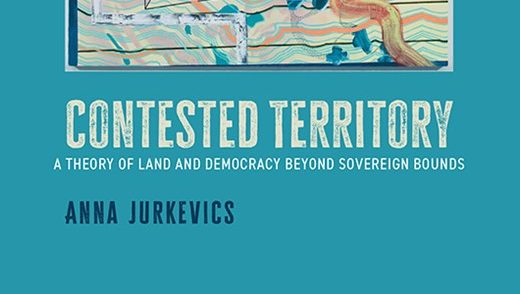UBC Political Science wishes a happy retirement to a path-breaking researcher and one of the most accomplished political scientists of his generation in Canada.


While we are sad to see him go and will miss him greatly, Johnston has a truly well-earned retirement decorated with numerous achievements, prestigious awards and positions. At UBC, he has been awarded a Killam Research Prize and appointed a Distinguished University Professor in 2003, and since 2010 Canada Research Chair in Public Opinions, Elections, and Representation at the University of British Columbia. He was awarded the Dean of Arts award in 2019 which recognizes faculty members who have made exceptional and sustained contributions in two or more areas (educational leadership, teaching and learning, research, and community engagement), and whose contributions have proven to be transformative to the Faculty of Arts. His selection as President of the Canadian Political Science Association in 2007-8 attested to his stature in the field.
Internationally, Johnston has been recognized by:
- the Mackenzie King Chair at Harvard University in 1994-5
- the Mildred A Schwartz Lifetime Achievement Award from the American Political Science Association for contributions to the study of Canadian politics
- a Marie Curie Research Fellowship at the European University Institute
- the Alexander von Humboldt Research Award in 2017, which is for “outstanding academics at the peak of their careers.”
Richard Johnston created the standards political scientists use in their research of elections.
Professor Johnston was the Principal Investigator and primary designer of the 1988 and 1992-3 Canadian Election Studies (CES). He developed a methodological design for the analysis of election campaigns that since then has become widely accepted as an ideal approach for this field of research. Since this design’s inception, it has become the gold standard of research into campaign effects. Johnston and Brady (2002) and Brady and Johnston (2006) are the most widely cited standard sources on this method.
In recognition of these accomplishments, Professor Johnston was appointed Research Director of the National Annenberg Election Surveys (NAES) of the 2000 and 2008 U.S. Presidential Elections, located at the University of Pennsylvania. The scope and ambition the NAES made it the largest political survey project ever conducted worldwide.
His co-authored study of the 2000 U.S. Presidential election, The 2000 Presidential Election and the Foundations of Party Politics (Johnston et al. 2004) quickly became a standard citation on the impact of campaigns. Over time, the studies led by Professor Johnston inspired numerous national election studies which adopted similar designs. Following the model of the 1988 and 1992-3 CES, RCS surveys conducted to capture campaign dynamics have become components of national election studies also in the UK, Switzerland, Austria, Italy, and New Zealand. For many of these studies, Professor Johnston served as a consultant.
Professor Johnston’s contributions continue throughout other subfields of Political Science.
Professor Johnston’s research extends to broader themes of democratic citizenship, investigating the relationships between social capital and trust, multiculturalism, immigration, and the welfare state. This originates in ongoing issues in Canada that verge on the existential. His first book, Public Opinion and Public Policy in Canada (Johnston 1986), drew together 30 years of survey data on trust, confidence, and economic policy in a period when the survival and governability of the country seemed in doubt.
By the late 1990s, these themes resurfaced in the context of challenges to the welfare state and a massive rethinking of Canada as a settler society. The first product of this was a survey that uniquely combines questionnaire content from the census, labour force surveys, political science, and sociology. From this followed a decade of pioneering work in multilevel analysis by Johnston, some of it coordinated with the concept of social capital popularized by Robert Putnam.
More recently, Professor Johnston’s attention shifted to broader comparison, with work on the impact of immigration on welfare state spending, as well as articles on attitudes to inequality, immigration, and inclusion, also as affected by immigration and as moderated by multicultural policies. Among his key findings is that multiculturalism has not eroded support for the welfare state or social solidarity, which provides critical empirical evidence to challenge the backlash against immigration and multiculturalism in today’s world.
Finally, an important theme of Professor Johnston’s other work is long-term change in party systems’ structural roots in the electorate and its causes. Most recently, his central preoccupation has been an analytic history of the Canadian party system, proposing Canada as a critical case for the comparative study of elections and party systems. His latest book, The Canadian Party System: An Analytic History, published by UBC Press in 2017 is, in many ways, the culmination of his Canadian politics career.
Richard Johnston has made significant leadership contributions to UBC’s community.
Johnston’s exemplary contributions to the university are numerous and their scope and range reflect the high respect that colleagues across all Faculties have for his leadership, judgment and wisdom.
His leadership of the UBC Behavioural Sciences Review Committee stretched for a full decade from the late 1980s. At the time the committee had adopted a narrow approach to several critical methodological approaches that made it particularly difficult for faculty to pursue their research agendas. Johnston’s patient and persuasive leadership helped renovate both process and criteria and opened up the research grant assessment approval process to colleagues across the Faculty of Arts who had seen their research programs stymied. It was an extremely time-consuming exercise but one that paid off richly for a community of researchers in several disciplines.
Johnston also served as Head of the Department of Political Science at UBC. It came at a time of considerable faculty renewal and Johnston’s strategic leadership reshaped and grew the department as he oversaw the recruitment and retention of a phalanx of young scholars who have helped establish an enlarged and enhanced department as a major research centre for the discipline. That growth stimulated the development of a major expansion in the PhD program, many of whose graduates have gone on to important positions across the country. Many of Johnston’s own students are shaping the discipline today at institutions including McGill, University of Montreal, and the University of Michigan, as well as having an impact in the private sector such as establishing their own polling company.
In particular, Johnston has helped to produce a generation of feminist political scientists engaged in election studies including PhD students Brenda O’Neil (professor, former head of U of Calgary and current editor of the Canadian Journal of Political Science), Amanda Bittner (Memorial University), and Grace Lore (ran for city council works directly with the Sexual Assault Center in Victoria and Equal Voice).
Despite an already heavy research and teaching load, which has included running the Honours program, for over twenty combined years, Johnston served as one of two faculty members on the UBC Board of Governors for two terms. In that role, he became a major voice at the highest level of the University advocating for good governance and excellence in teaching and research.


